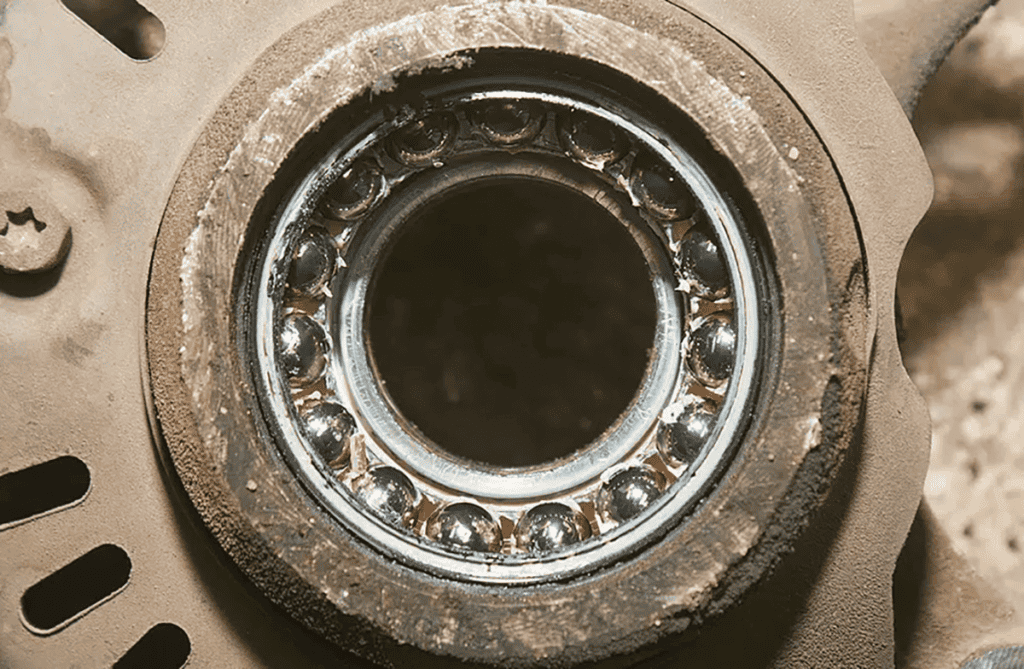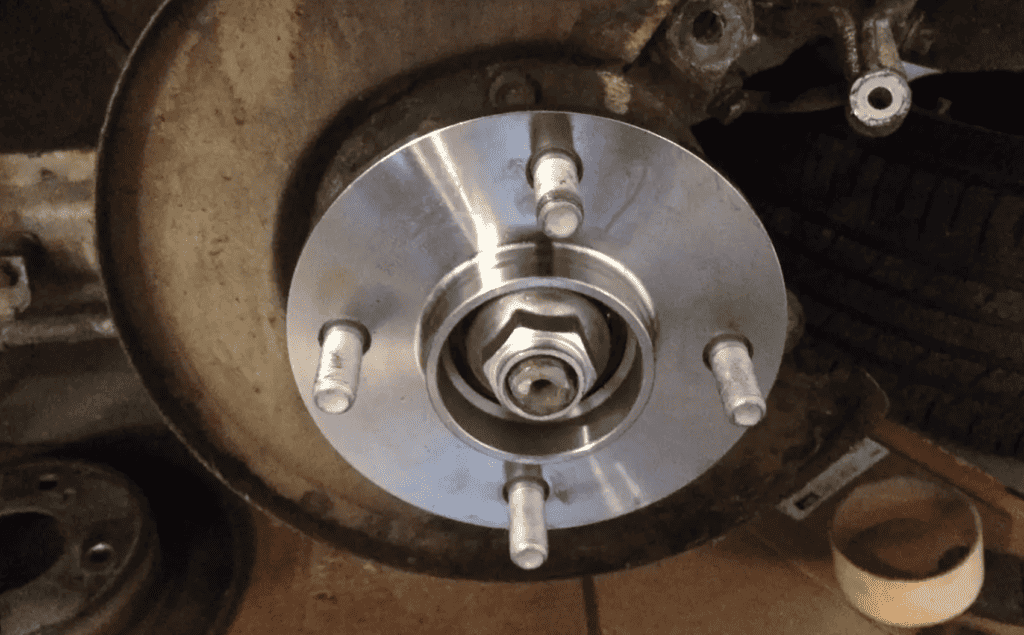Introduction: Understanding the Importance of Wheel Bearings
Wheel bearings are critical, yet often overlooked components of a vehicle’s wheel assembly. They enable the wheels to spin with minimal friction, ensuring a smooth and controlled ride. Wheel bearings support the vehicle’s weight and, together with the suspension system, absorb road shocks. As such, their state directly influences the vehicle’s handling and safety. Given their importance, it’s crucial to recognize when they might be going bad and the risks associated with neglecting them.
Recognizing the Signs: What Happens If Your Wheel Bearing Goes Bad?
When wheel bearings start to deteriorate, they often signal their distress through noise. A humming, rumbling, or growling sound that increases with the vehicle’s speed or as the vehicle sways from side to side might indicate a bad wheel bearing.
Another common sign of a bad wheel bearing is when your vehicle pulls to one side while you’re driving. This is often due to uneven wear on the bearings, causing one wheel to drag slightly. The dragging wheel can cause the car to gently veer to one side. In addition, if you experience a lot of play in the wheel (where you can wiggle the wheel back and forth), this is a definite sign of a severe wheel bearing problem.

Over time, these symptoms will become more pronounced. The noises may become louder, the vibrations more severe, and the steering control less responsive. Importantly, as these symptoms progress, the bearing is likely causing damage to other components of your wheel assembly. This is why it’s crucial to address any suspected wheel bearing issues promptly. Waiting to replace a bad wheel bearing can lead to other parts of the wheel assembly becoming damaged, resulting in more costly repairs down the line.
The Financial Impact: How Much Does a Wheel Bearing Issue Cost?
Ignoring these warning signs can lead to more severe problems and, consequently, higher repair costs. A typical wheel bearing replacement can range from $300 to $400 per wheel, but costs can escalate significantly if the damage extends to other parts of the wheel assembly, such as the hub, spindle, or axle shafts. In extreme cases, where a wheel bearing failure leads to a wheel coming off while driving, the costs could be enormous, potentially totaling the vehicle.
The Dangers of Neglect: What Happens If You Don’t Replace Your Wheel Bearings?
Choosing to ignore a bad wheel bearing can have grave consequences. The most dramatic of these is the wheel detaching from the vehicle while it’s in motion, causing a severe accident. However, even if things don’t get that far, a bad wheel bearing can make the car hard to steer and control, affecting your ability to drive safely. It also puts undue stress on other components of your vehicle, causing premature wear and tear that can lead to even more costly repairs down the line.
The Unseen Risks: What Are the Risks of Wheel Bearings?
Moreover, as wheel bearings are an integral part of your vehicle’s suspension system, their malfunction can significantly impact your driving experience. Faulty wheel bearings can create noisy rides and cause the vehicle to vibrate. Over time, the condition can worsen, causing steering to become loose and unresponsive, thereby jeopardizing your control over the vehicle.
In addition, a bad wheel bearing can also put excess strain on other components of your car. As the bearing wears out, it increases the load on the hub, axle, and wheel, potentially leading to failure in these areas as well. This cascade of damage can multiply the cost of repairs and lead to significant downtime for your vehicle.
Lastly, and most importantly, the failure of a wheel bearing can pose serious safety risks. An extremely worn-out bearing can cause a wheel to seize up or, in extreme cases, detach from the vehicle entirely. This can result in severe accidents, particularly if you are driving at high speeds. Thus, the risks associated with neglecting wheel bearing issues extend far beyond financial costs and can directly impact your safety.
Preventive Measures: How to Avoid the High Costs of Wheel Bearing Replacement
• Regular Maintenance: Keeping your vehicle serviced according to the manufacturer’s schedule is crucial. Regular oil changes, brake checks, and tire rotations provide opportunities for a mechanic to spot early signs of wheel bearing wear.
• Mechanic Check-Ups: Ensure that your mechanic includes wheel bearings in their routine checks. Professional mechanics have the tools and experience to detect issues that you might miss. Detecting wear and tear early on can prevent minor issues from escalating into costly repairs.
• Gentle Driving: How you drive can impact the lifespan of your wheel bearings. Avoid aggressive driving, hard braking, and fast cornering when possible. These actions can put additional stress on the wheel bearings, accelerating their wear.

• Avoiding Rough Surfaces: Try to avoid potholes, rough roads, and curbs where possible. Driving on rough surfaces can cause physical damage to the wheel bearings or may cause them to wear prematurely.
• Tire Maintenance: Maintaining appropriate tire pressure and ensuring regular wheel alignment can reduce undue stress on your wheel bearings. Both under-inflation and over-inflation can put more strain on your wheel bearings, leading to premature wear.
• Cleanliness: Keeping your car clean, especially in winter months or in areas where roads are salted, can also help extend the lifespan of your wheel bearings. Road salt, dirt, and debris can corrode and damage the wheel bearings over time. Regular cleaning can help prevent this.
Conclusion
In summary, the cost of neglecting your wheel bearings extends beyond financial implications. It can affect your safety and that of other road users, as well as impact the overall performance of your vehicle. Regular maintenance, careful driving, and paying attention to early warning signs are all vital in managing the health of your wheel bearings and, by extension, your vehicle.
